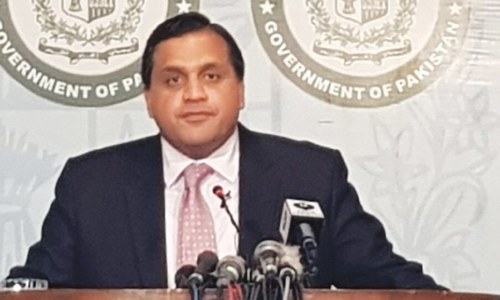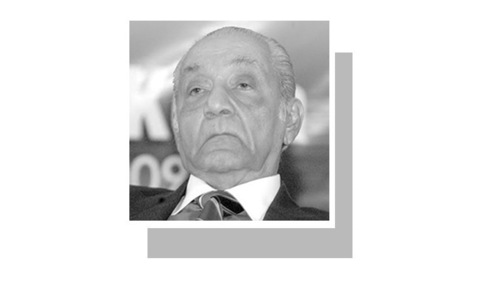KARACHI: The 1973 Constitution of Pakistan should be taught in schools so that the children learn at a tender age what their rights and duties are and what the core principles on which the Constitution is based are.
“The schools in the United States of America teach the constitution which makes the children aware of the organs of the state, their functions and their limitations.
“Unfortunately, several lawyers in our country are not even familiar with the preamble of the Constitution,” said retired vice admiral Arifullah Hussaini, who was the chief guest at a seminar titled ‘Indian hegemonic design and its implications’ organised by the Rabita Forum International on Wednesday.
Expert says shunning the project of gas pipeline from Iran cost Pakistan dearly
He further said a strong social justice system led a country to progress and prosperity.
“Quaid-i-Azam Mohammad Ali Jinnah said way before Pakistan came into being about the new country that it will be a democratic state based on the Islamic principles of social justice,” he added.
“Where there is social justice, there is progress. Romans once ruled the world but when their senate passed a law that a senator had to be a son or grandson of a senator in order to become a senator, its decline started,” said Mr Hussaini.
“All elements of social justice of our Constitution can be found in our national anthem,” he added.
“This is the era of hybrid war which consists of multiple layers, including cyber warfare, conventional war, diplomacy, spread of fake news, foreign electoral intervention, etc.
The future of war
“I think India is wasting its money on defence. The future of war does not belong to conventional methods but artificial intelligence. Whosoever uses it well will win. Therefore, we have to learn artificial intelligence,” the admiral further said.
Speaking on the occasion, former ambassador Hasan Habib said Pakistan was facing several issues at the moment. “Terrorism and poor economy top the list,” he said.
“India is a rising power. Their defence budget is going up about seven per cent every year which is about three per cent of their GDP. The US thinks it can counter China by developing India. On the other hand, nobody is ready to listen to the narrative of Pakistan.
“Therefore, it is sensible to bring India to the negotiating table so that both countries discover a peaceful solution to their problems. War is not a favourable option.
“We have to develop national unity and have to work for uplifting economy, health and science sectors,” he added.
“On the western border, it is now getting clearer that the US will not quit Afghanistan. It is a strategic location for them from where they can keep a close eye on China, Russia, Iran and Pakistan,” said Mr Habib, who served in China and North Korea as diplomat.
Retired Brigadier Haris Nawaz said the Pakistan-Iran gas pipeline project was almost complete, but it could not be materialised under international pressure.
The project was meant to deliver natural gas from Iran to Pakistan.
“In view of the rising geostrategic issues, the foreign policy of the country should be strong and should be in strong hands,” he said.
“The CPEC will be a game changer for Pakistan. China takes 41 days to reach Indian Ocean when it takes the Middle Eastern route but through the CPEC it can reach Indian Ocean in 7-8 days, which is a major difference,” he added.
Prof Dr Khalida Ghaus said there was a need to observe all developments closely.
“I have noticed that the Indian budget focuses more on borders, tunnels, defence corridors, infrastructure in Ladakh, Zojila Pass in Jammu and Kashmir and Sela Pass in Arunachal Pradesh,” she added.
Prof Mohammad Naeem of the Karachi University’s Department of International Relations said the competition between Pakistan and India had become tripartite after the introduction of China.
“Security is the prime concern for all states. Unfortunately, the efforts of a country to enhance its own security become insecurity for other countries,” he said.
Earlier, chairman of the organisation Nusrat Mirza welcomed the participants and briefly introduced the topic.
Published in Dawn, March 23rd, 2018














































